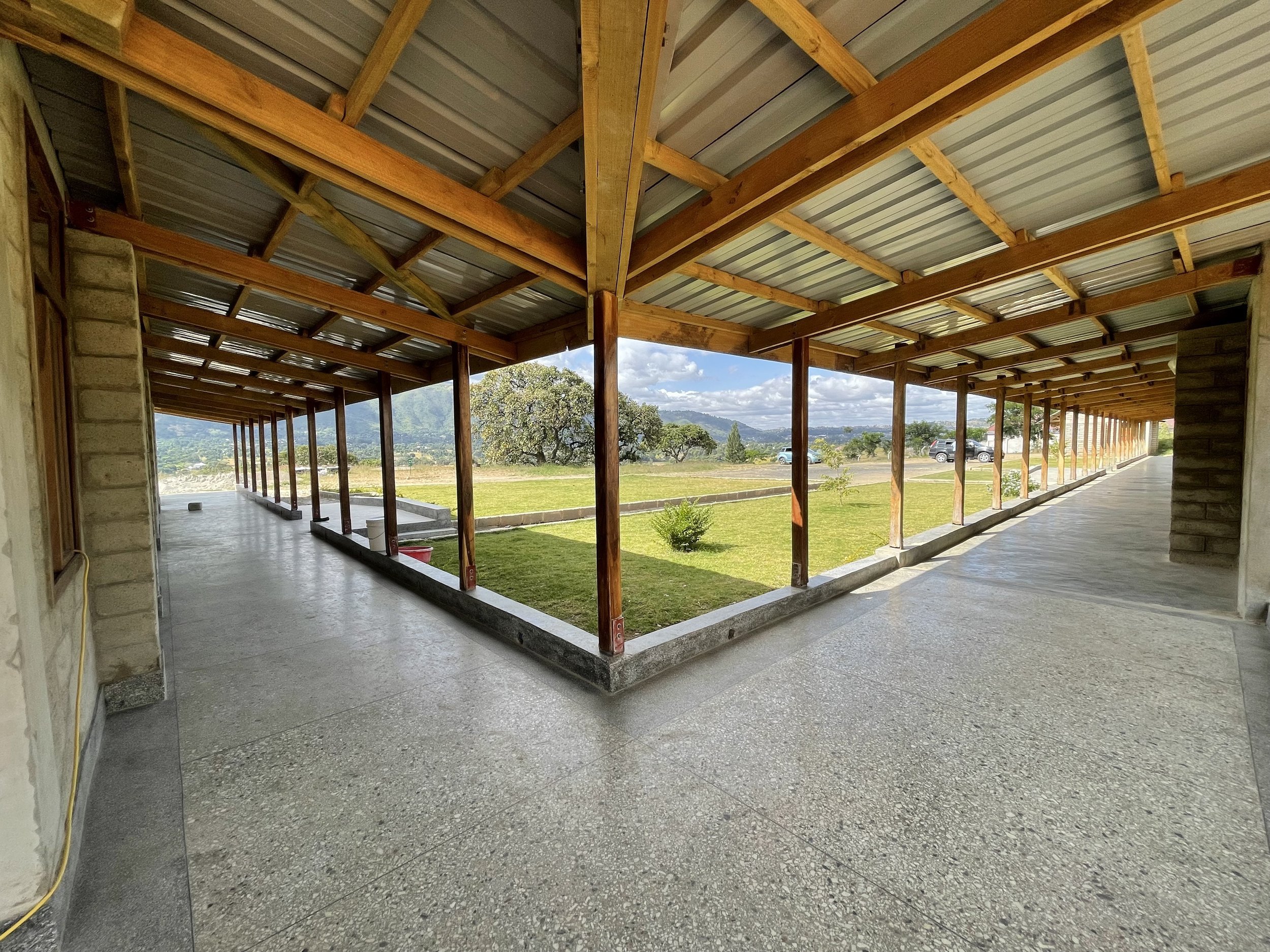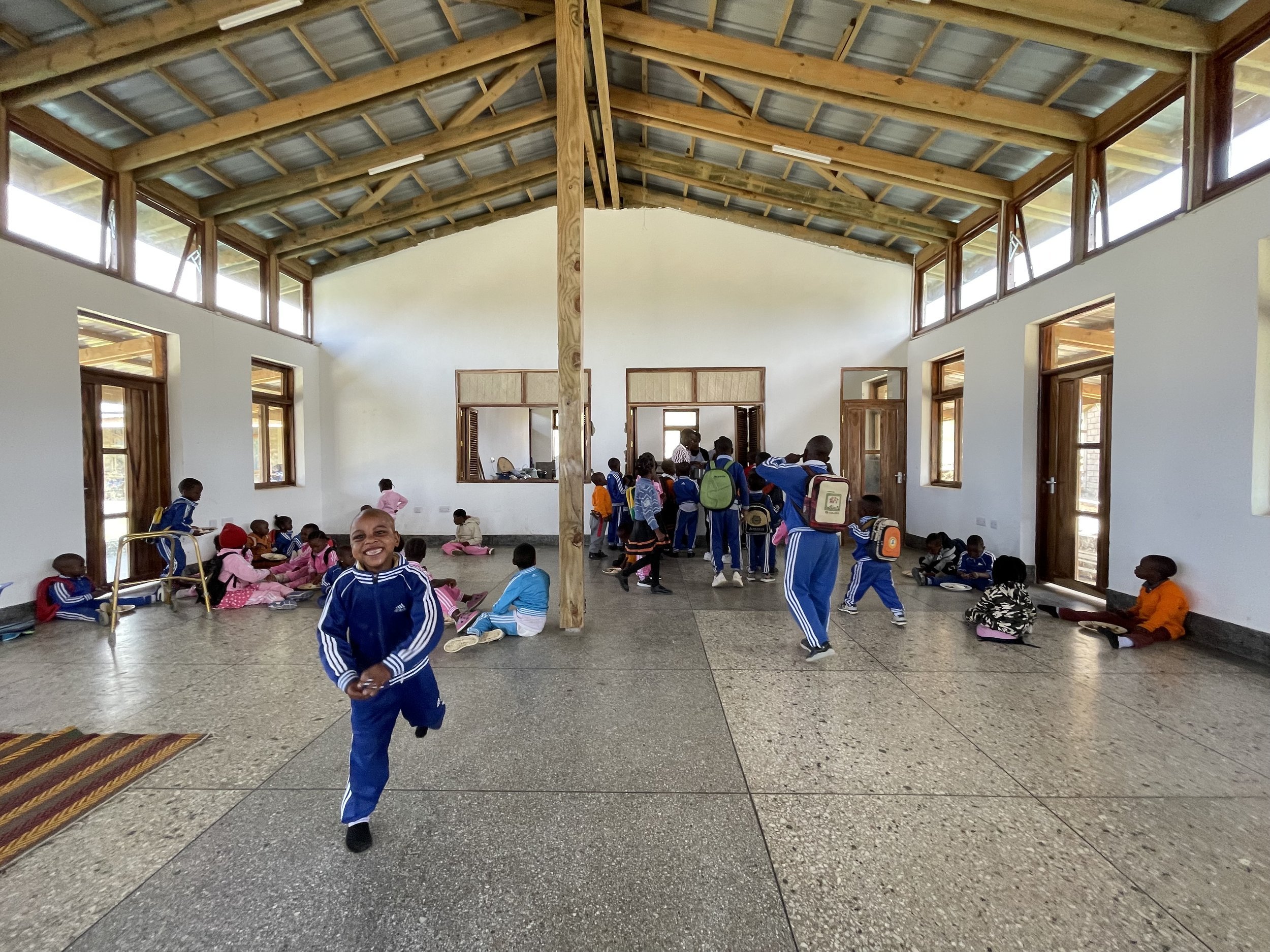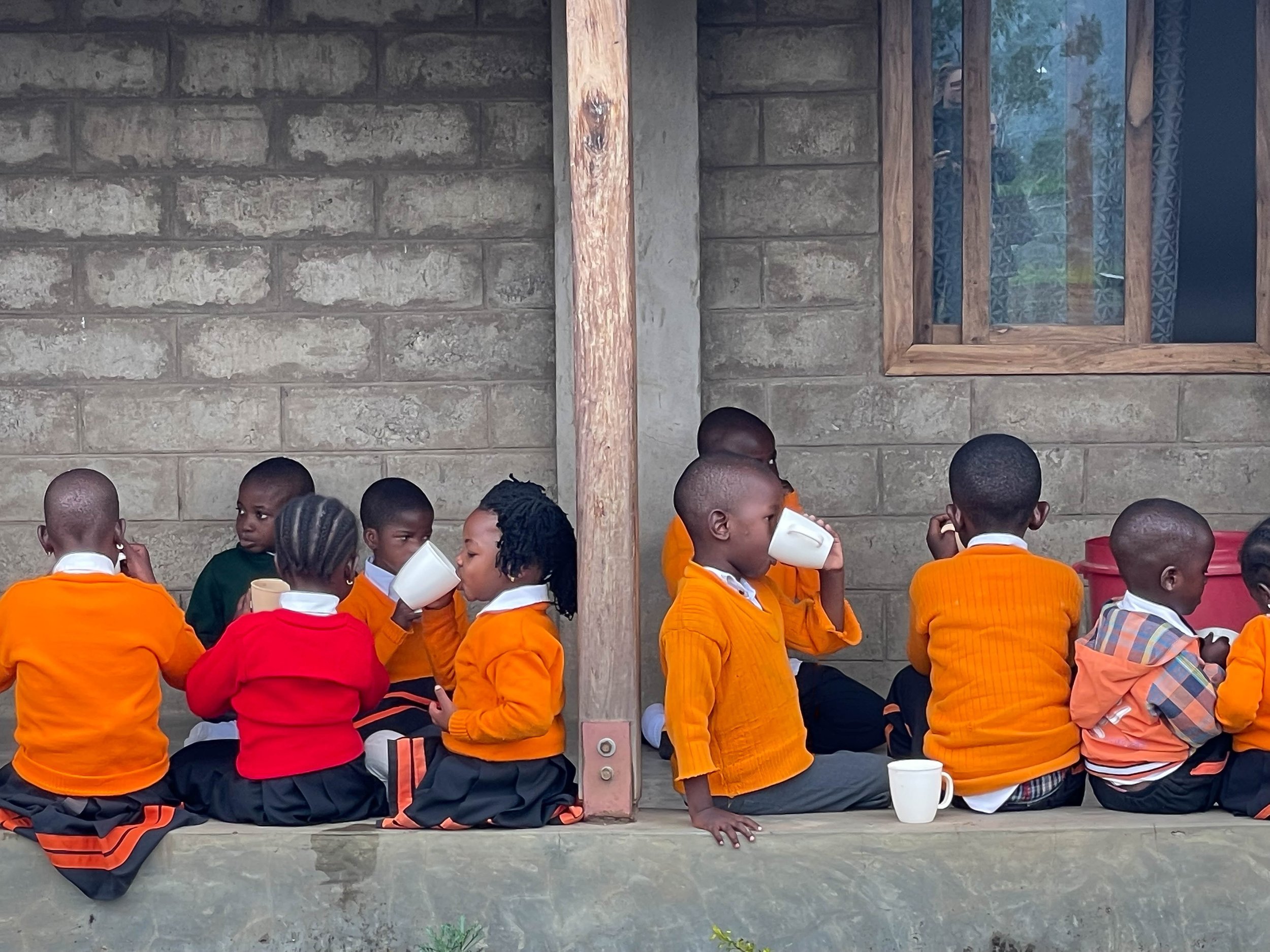Changing perceptions of disability: CST Inclusive Preschool
In Tanzania, schools have not been built with accessibility in mind. Even though a government policy exists to ensure children with disabilities have the right to primary and secondary education, the lack of accessible spaces makes this very difficult to fulfil.
In 2016, we began working with Able Child Africa and Child Support Tanzania to design an extensive and inclusive school campus that could become a model for the construction of other schools in the country. You can read more about the project's origins here.
A model school designed for every child
The accessible design of the school enables children with disabilities to join a mainstream school curriculum at age five alongside their able-bodied peers. Key design elements include wide doors for assisted walking or wheelchair use, level access throughout the school, built-in ramps and accessible bathrooms.
The design responds to the particular challenges in the region, offering protection from extremely dry weather. It also uses verandahs and deep overhangs to protect against heavy rain or hot sun, and has built-in earthquake resistance.
Article 25’s Senior Architect and current Lead Architect on this project, Toby Pear, is excited about further schools using the CST Inclusive Preschool design. He says:
“This project is a first of its kind in the country, which is hugely motivating as we have the chance to make a tangible difference to the local community as well as developing a low-cost exemplar which, with the right partners, could be replicated with very few changes in different sites across Tanzania.”
Breaking news - project update
The project recently entered Phase 5 of construction - in this phase, two more classroom blocks and a suite of accessible toilets will be built. The new blocks will house five classrooms in total. When the project is completed, 200 children will be able to attend classes at the school. Toby reports: “The foundations were successfully laid in December 2023 and everything is on schedule.”
The school already makes use of six completed classroom blocks and a dining hall from previous phases. The dining hall was recently used to train 280 teachers from the region in topics such as inclusion, children’s rights, child protection, and safeguarding.
Phase 5 will be completed by the end of the year.
Keeping things local
The impact of the school reaches the wider community too. All of the materials, the contractor and labourers come from within the locality.
“Employing twenty people to build the foundations for Phase 5, rather than using hired machinery, means these workers are on site earning a wage in a place where unemployment is a huge issue,” Toby explains. “The effect of this is, they can feed their families and contribute to the local economy. Our model of keeping things local, right up to making blocks on site, means minimising imported materials and maximising local labour for everyone’s benefit.”
The strong relationship between Article 25 and the local community offers a further advantage for the project: “We spend a lot of time at the site and have someone on site every day to supervise the build. This puts us in the unique position of being able to improve the design as we go along. We can actively solve problems. It makes Article 25 so much more than a consultant.”
Toby goes on to say how important it is for Article 25 and partners to learn from the community: “It’s a privilege to work with local people on this project. I’ve learnt a lot from them. You quickly realise you need to drop any preconceived ideas about what you thought you knew. It’s the ideas and opinions of the people who will use the buildings, and the wider community, that shape the project and make it a success.”
Future plans and visits
The next planned phases of the project include an office for the school’s staff, a sensory garden and a physiotherapy pool.
Toby explains that getting beyond the classroom was a key consideration in the planning of this project: “Children with disabilities experience the world differently, so designing an area where students can explore light and textures, with an opportunity for sensory adventure and joy, was vitally important.”
The Article 25 team will next visit the CST Inclusive Preschool in March. Toby says they are all really looking forward to it: “We can’t wait to talk to the children and wider community to hear about the impact this project has had on people. We want to be able to tell these stories widely and help make the case for more schools like this to be built in Tanzania.”
We’re thrilled that the CST Inclusive Preschool continues to develop and is now recognised as a model school by the Tanzanian government.
You can read more about the design on the project page.




